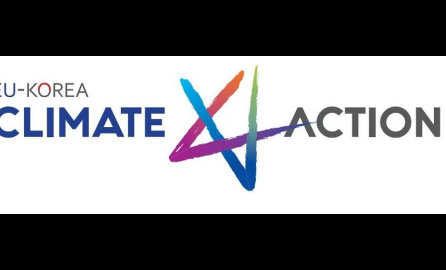Event 1. The Incentive Schemes for Energy-Efficient Buildings Webinar
The webinar was held on 27 August 2020 to discuss financial and non-financial incentives to promote building energy performance requirements in the EU and Korea. Mariangiola Fabbri, Head of Research at the BPIE and Seán Armstrong, Senior Advisor at the Irish Department of Housing, Planning and Local Government, were invited as EU speakers while Min-Gyeong Kim, Research Fellow at the Department of Safety and Environment at the Seoul Institute participated as a Korean speaker. Heyun-Jun Moon, Architectural Engineering Professor at Dankook University, joined as a discussion panelist and Seung-Eon Lee, Senior Research Fellow at the Korea Institute of Civil Engineering and Building Technology, moderated the discussions.
Opening speeches were delivered by representatives of each four organizers including the EU Delegation to Korea. After the opening remarks, the first speaker, Min-Gyeong Kim informed on the Seoul government’s incentive policy for green buildings. Having said that the actual application of the incentives is only about eight percent in the total number of green buildings, she revealed th main reasons are the lack of information and the substantive administrative burdens associated with applying for the incentives. She proposed measures for improvement, such as encouraging small building owners to apply for incentives and informing real estate companies on the incentive policy
Mariangiola Fabbri informed on the EU’s building policy and renovation strategies. She introduced two examples of financial incentive schemes for building renovation from Italy: Ecobonus and Superbonus. Ecobonus, which reimburses up to 80% of the renovation cost for 10 years after a building is renovated, provides both tax rebates and tax incentives. Superbonus is an extended version of Ecobonus which re-pays building renovation up to 110%. With Superbonus, the Italian government is expecting an uptake of building renovation on a larger scale which has not been achieved with Ecobonus.
Seán Armstrong informed on the incentive schemes in Ireland, a country which introduced renewable energy policy and advanced performance requirements for buildings at an early stage. This increased the number of A rated buildings in new residential construction, effectively encouraging the installation of heat pumps, and reducing installations of oil boilers in new buildings from 37% to 4%. The Irish government provides Better Energy Homes Grants as a financial incentive targeted at private homeowners. Although this program has supported 260,000 homes out of a total of 2 million since 2009, it still needs to be scaled up.
During the discussion session, Hyeun-jun Moon expressed his concerns over the gap between the intended energy performance by design and actual performance by operation. He said that there are strong needs for a consistent performance monitoring and application of countermeasures to cases where actual building energy performance does not meet the intended target after the incentives had been provided. He asked Seán Armstrong about measures applied to such cases by the Irish Government. Mr. Armstrong answered that financial incentives are provided as long as the building energy performance standard is met, therefore, actual performance does not matter much. He emphasized the importance of commissioning and validation of building energy performance to ensure the actual performance to meet the target by design.

Related documents
Incentive Schemes and Examples to Improve Building Energy Efficiency in Korea - Min-Gyeong Kim
English (1017.18 KB - PDF)Incentive Schemes and Success Stories for Building Renovation - Mariangiola Fabbri
English (1.39 MB - PDF)Incentive Schemes and Success Stories for New Buildings - Sean Armstrong
English (1.45 MB - PDF)Energy-Efficient Building Incentive Webinar Program
English (460.12 KB - PDF)